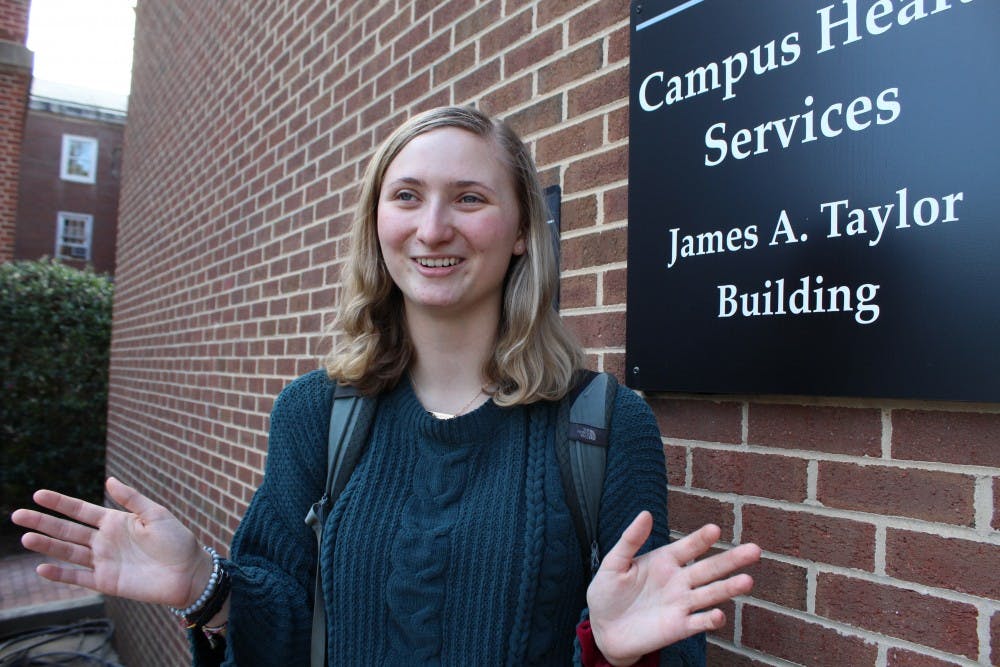Whenever first-year Eleanor Murray made a mistake, she felt she had to make up for it in some grandiose way.
In November, Murray sought out the guidance of an online advice group. When one person commented that this sounded like anxiety, Murray began a mental health journey that continued with research and a visit to Counseling and Psychological Services.
“That was kind of like the first (time) I was really exposed to any idea of me not being neurotypical, having any kind of mental health disorder, because in school, I wasn't really taught, ‘Here’s the identifying signs,’” Murray said. “I was more taught essentially like, 'Here's what to do if one of your friends has depression,' or something like that. It was never really about yourself.”
Once at CAPS, Murray met with an intern and discussed her concerns. The intern gave her three options, which included meeting with a low-commitment anxiety support group, beginning short-term therapy with CAPS up to six sessions or finding long-term therapy by referral elsewhere.
Murray chose the referral option. She believes her CAPS experience was positive overall, but some students question if CAPS would better serve students by allowing students to come back for more sessions before being referred elsewhere.
Junior Katie Clark, who used CAPS to find a new therapist for her anxiety, said she was only able to go for six sessions before being referred to an outside provider.
“For me, (CAPS) wasn’t the most helpful because they started out saying, 'You know, this is very temporary,' so they started out saying we can’t conquer the issues you want to talk about,” Clark said. “This is very temporary.”
Although Murray said CAPS’ referral process allowed her to narrow down her long-term therapist search by cost, location, gender and style of therapy, she said it is a concern that CAPS cannot serve students who do not want a referral and would like to continue their sessions on campus.
“The idea that, if they feel like they can't help someone, they just refer it to someone else, I wouldn't say (is) degrading, but I think it can be a little de-motivating for that person because if you work up the courage to go get help, the people who are supposed to help you kind of push that problem to something else,” Murray said. “While they're still there to support you, it doesn't completely feel like they’re supportive.”



